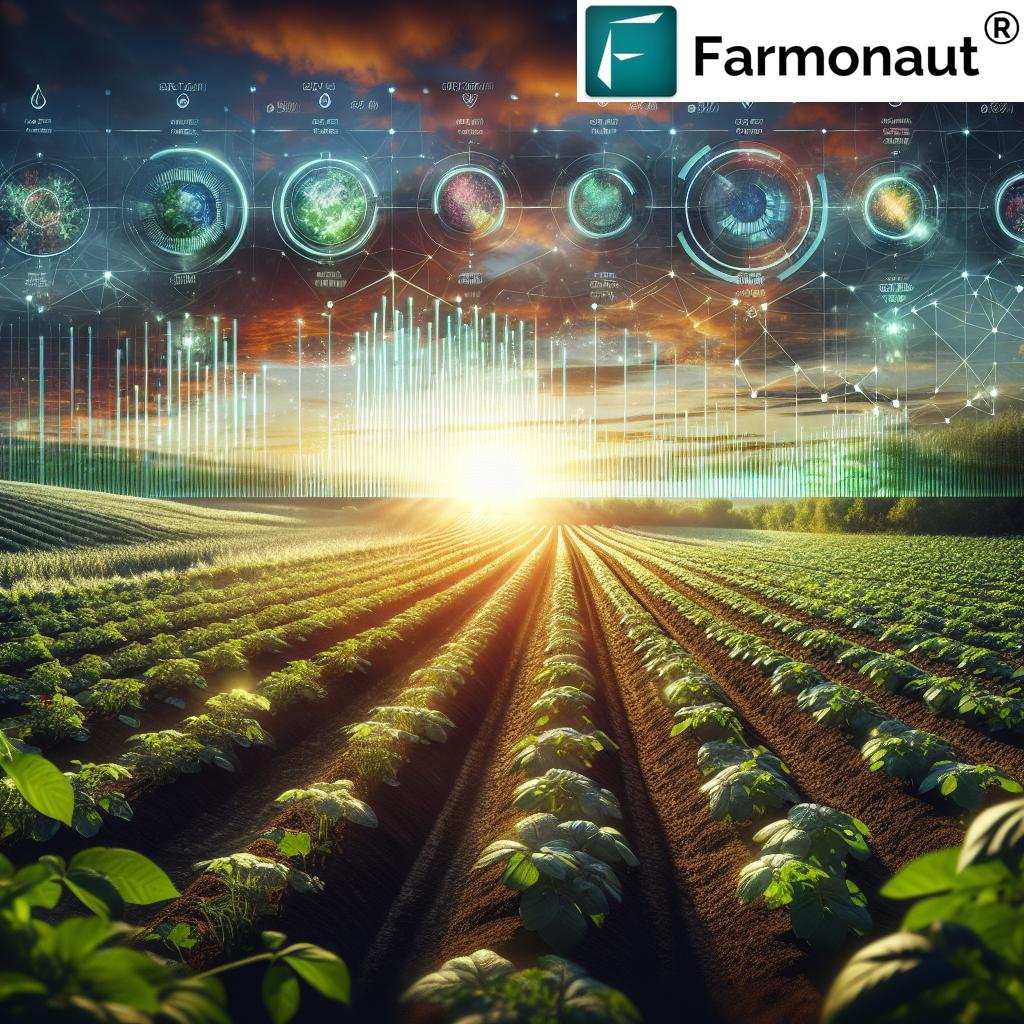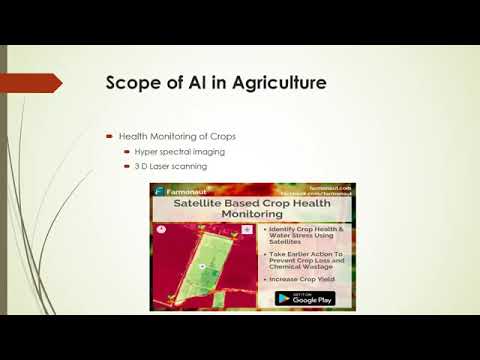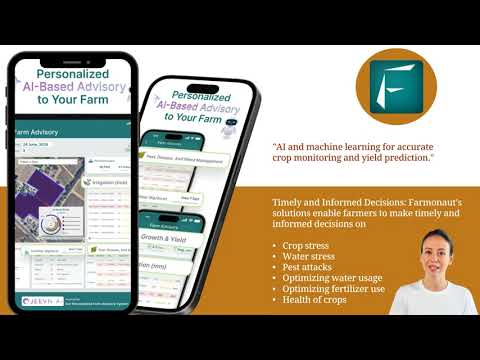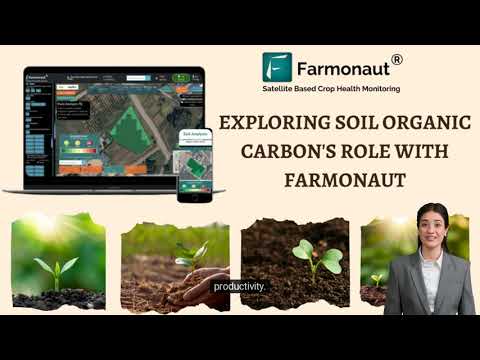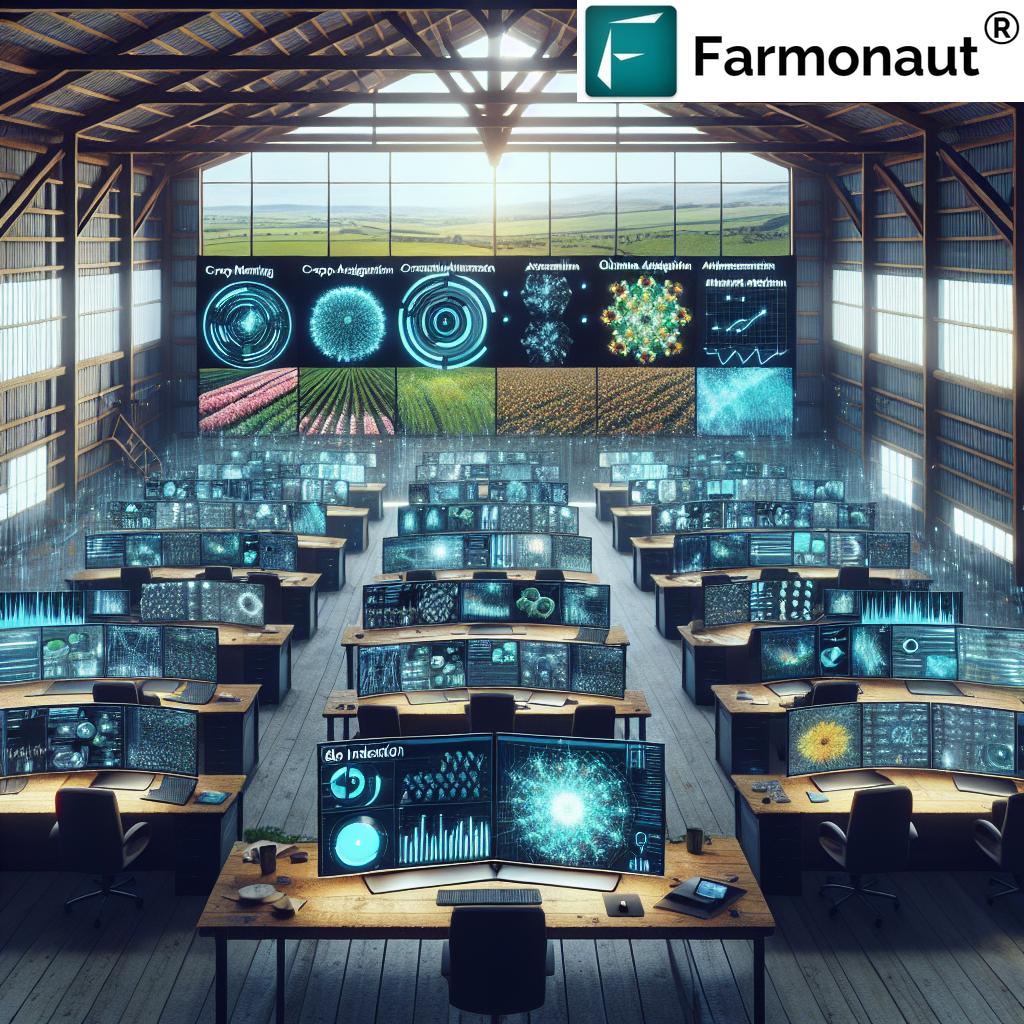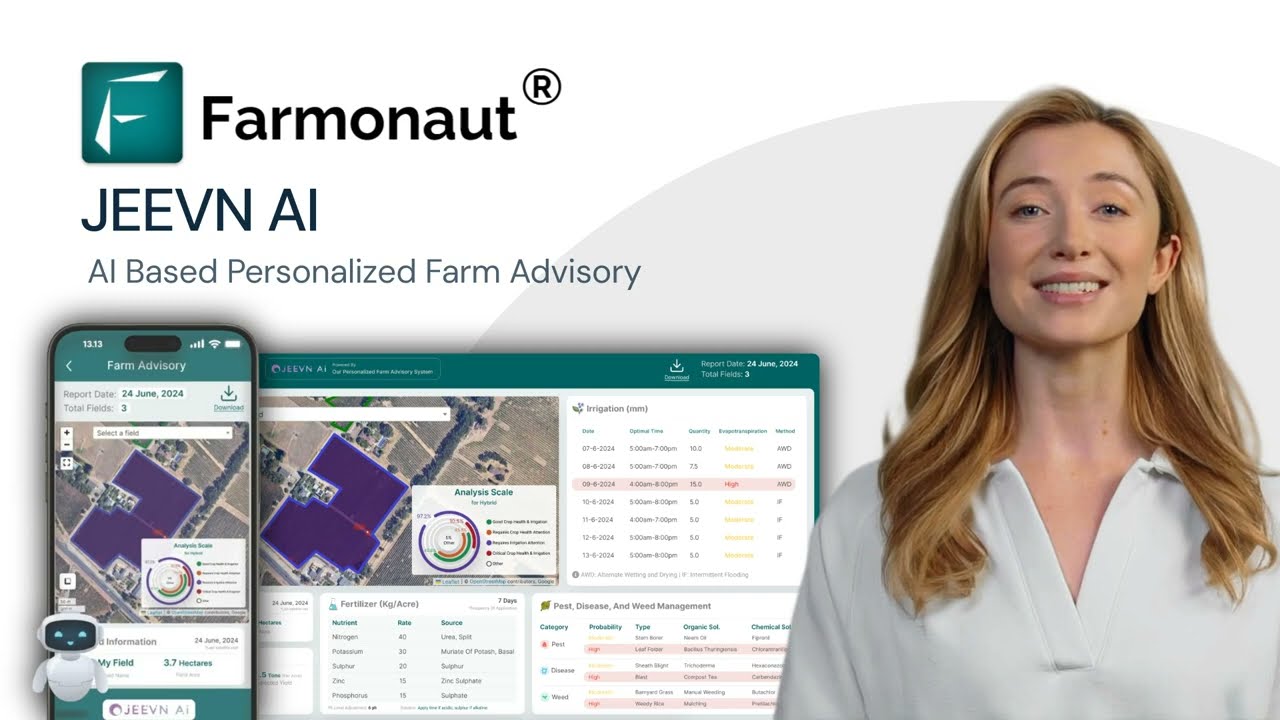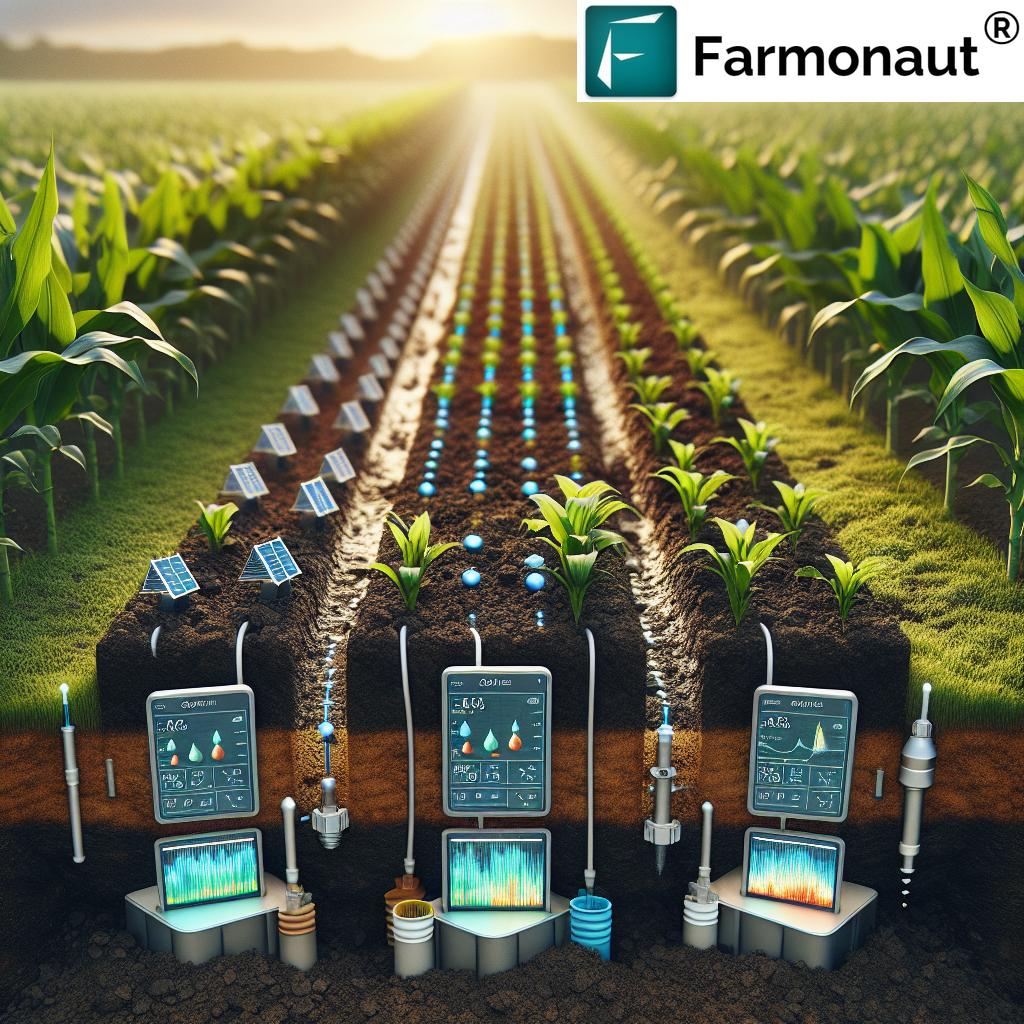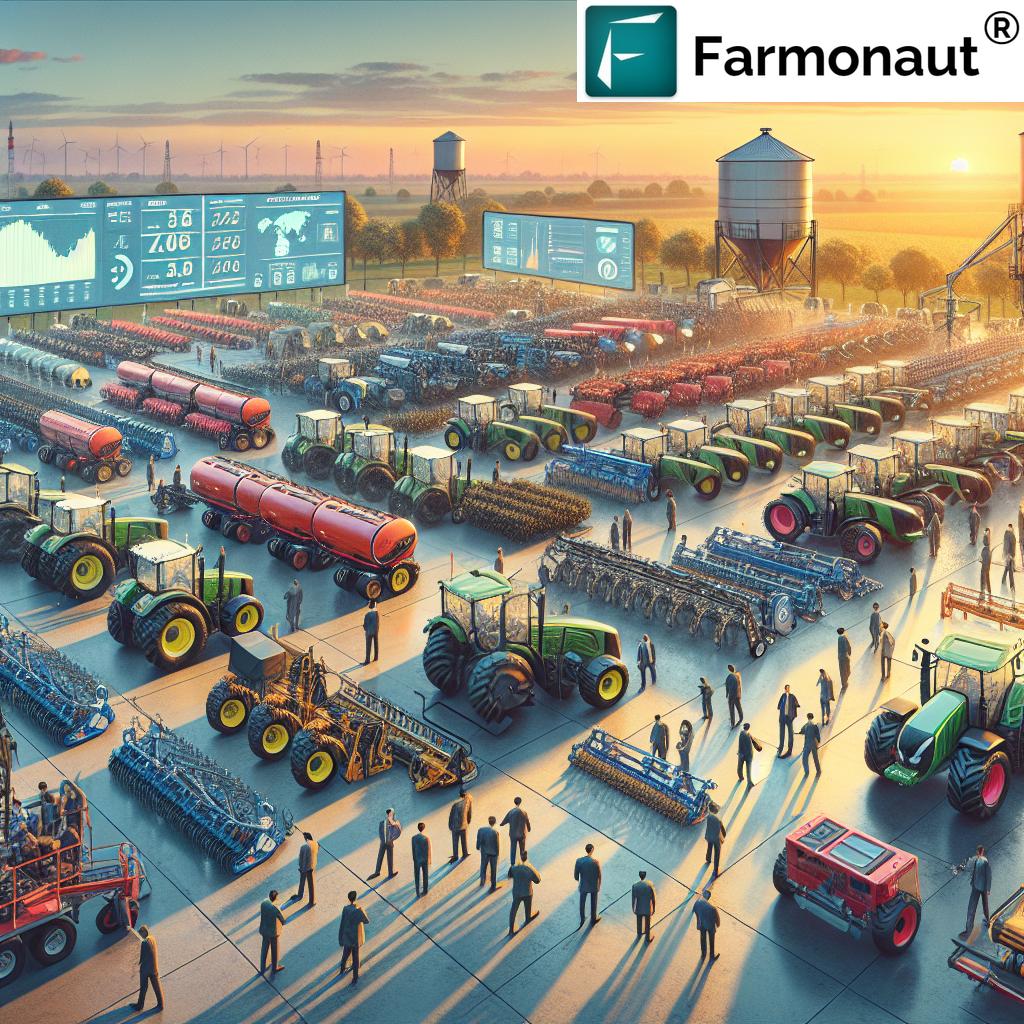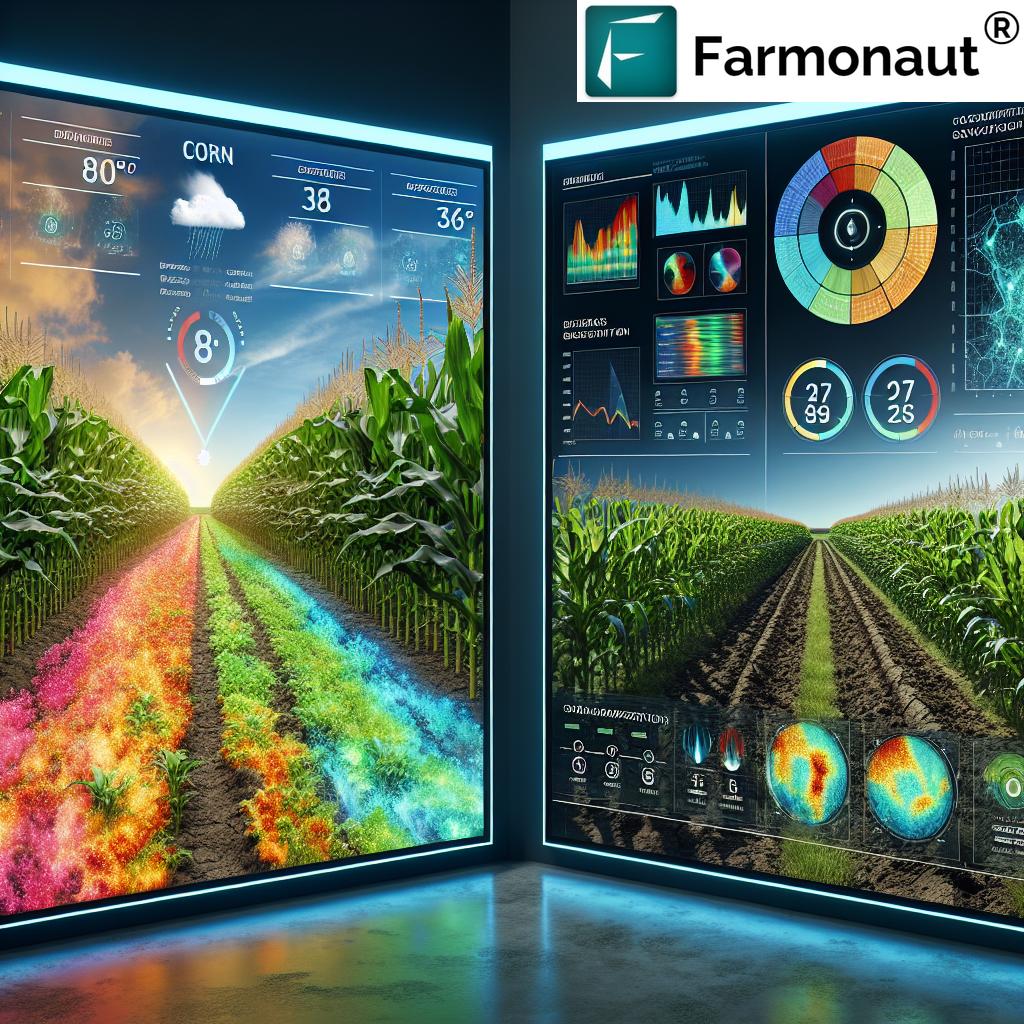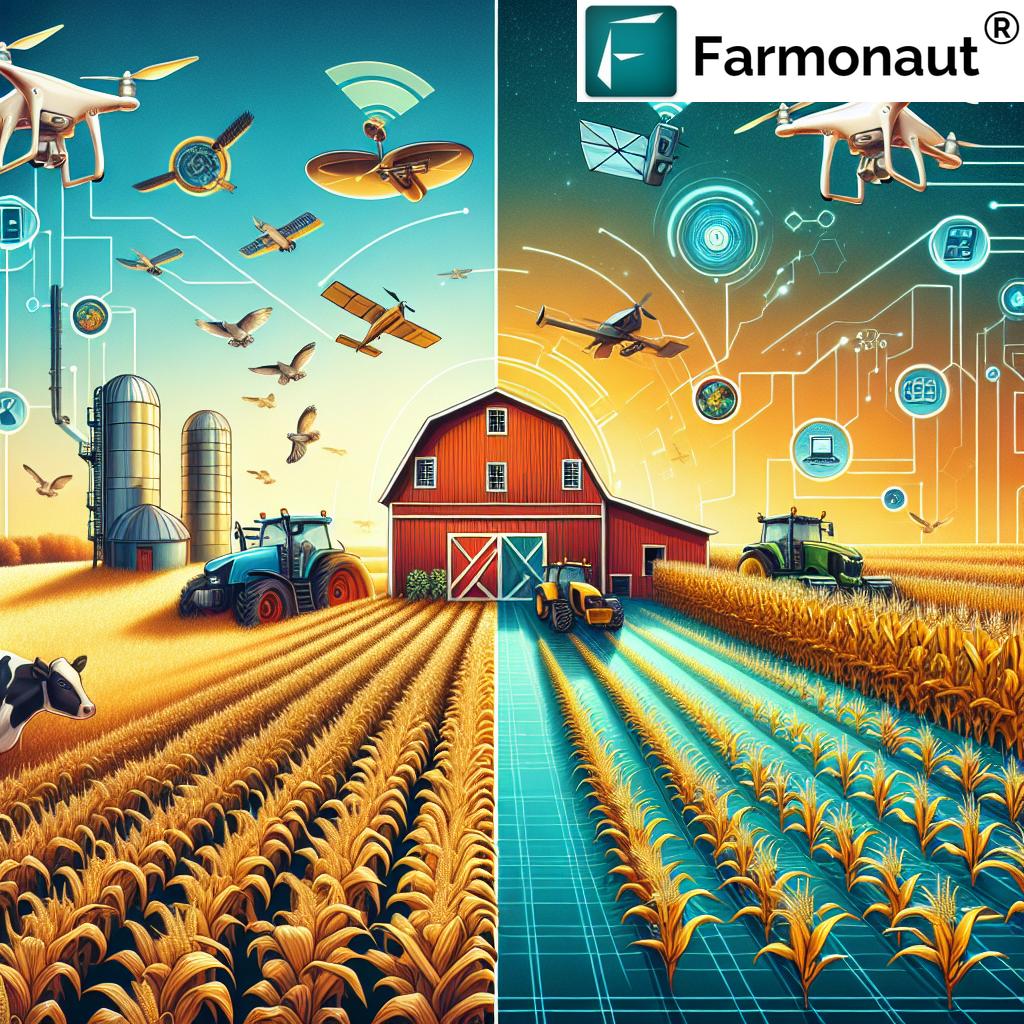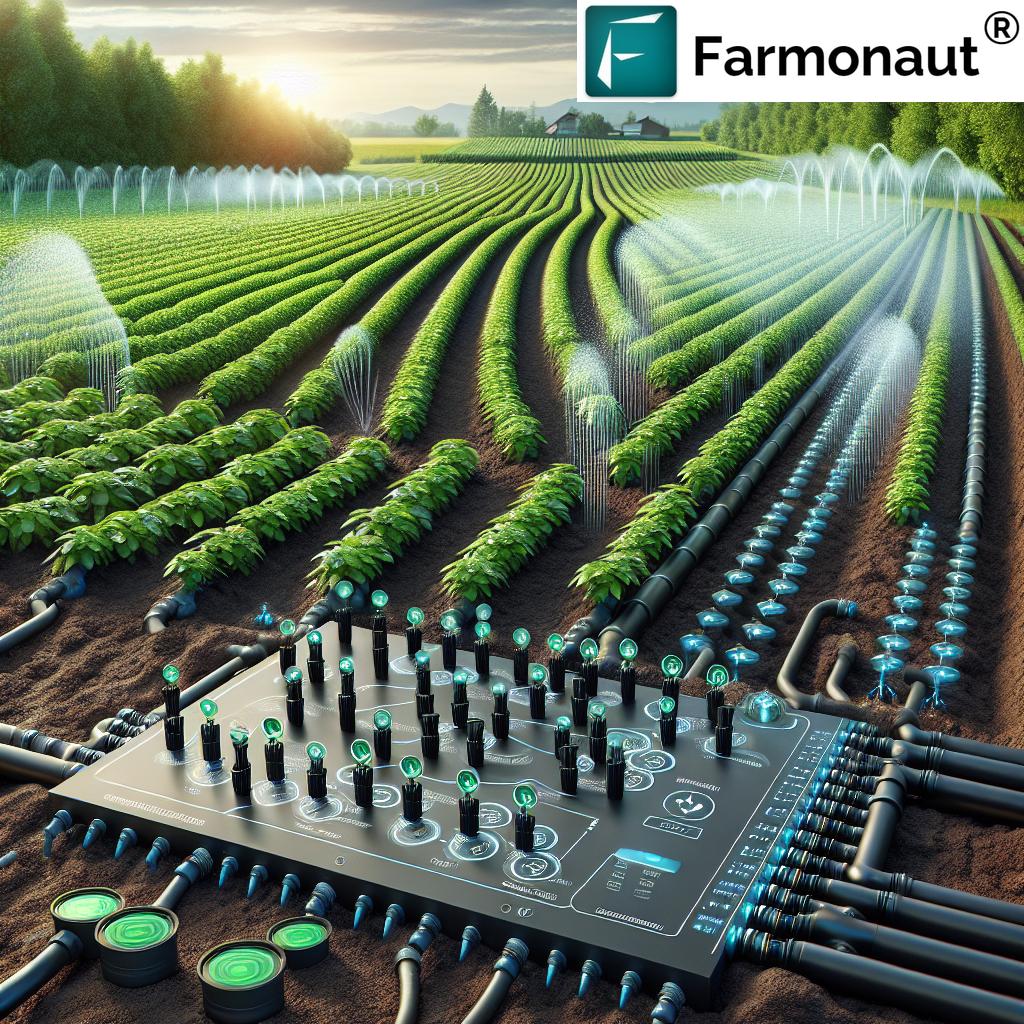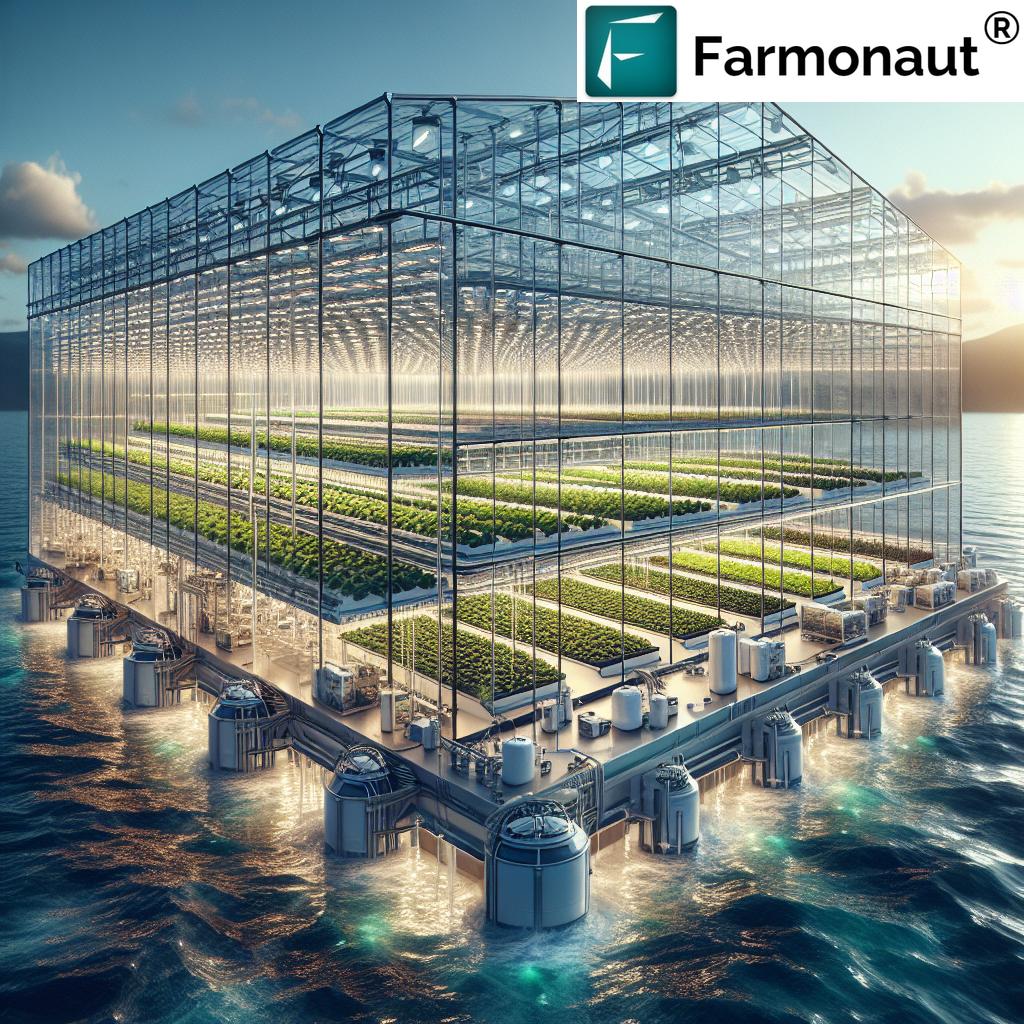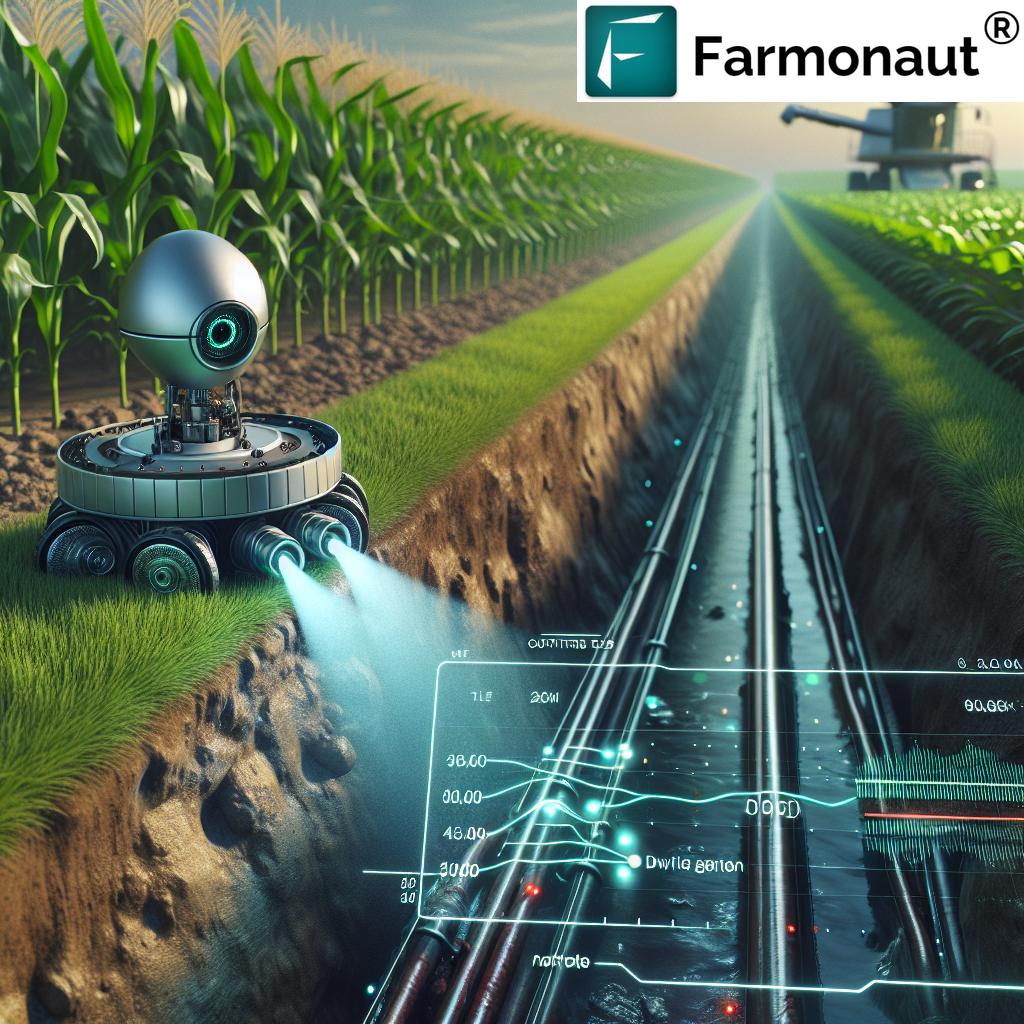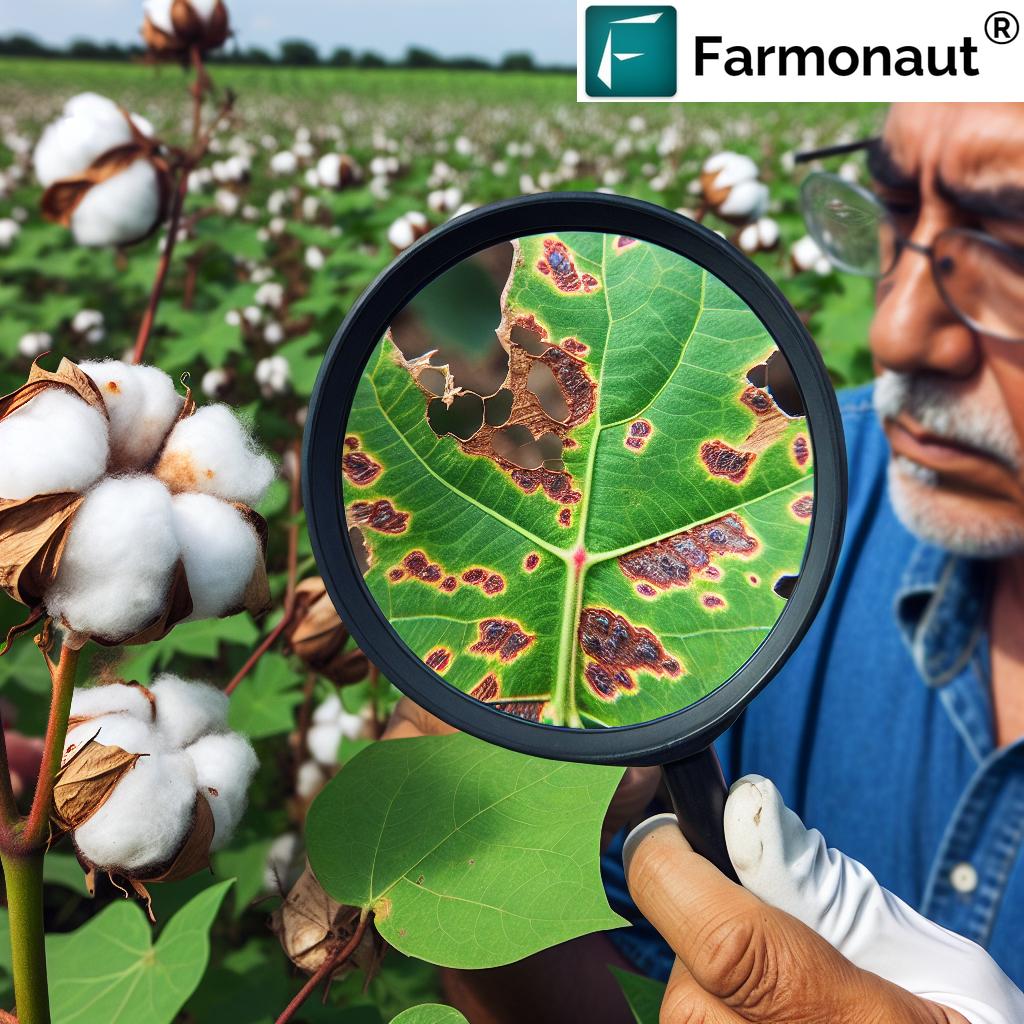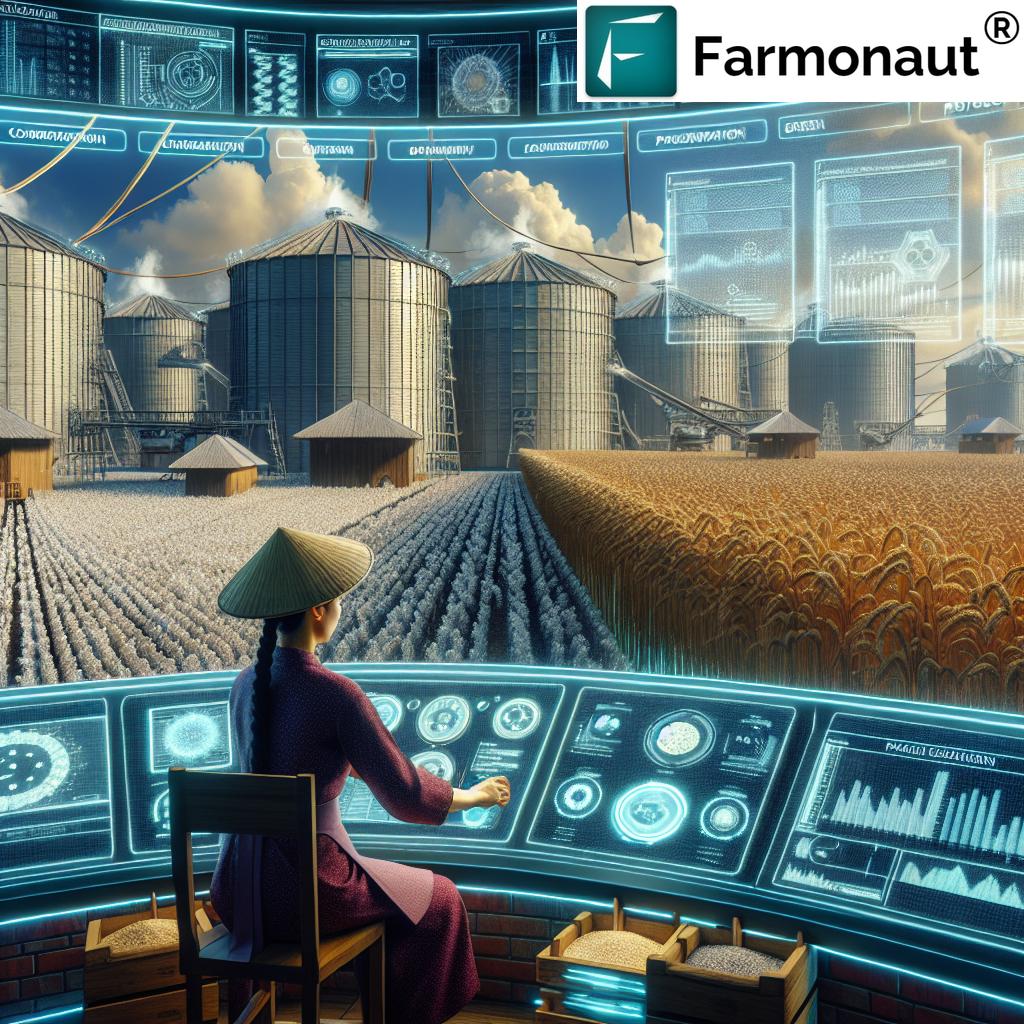AI in Sustainable Agriculture: 7 Ways to Boost Yields
Artificial Intelligence (AI) is at the heart of the next agricultural revolution—reshaping how we approach sustainable farming. By harnessing advanced AI technologies, farmers across the world are making smarter, more informed decisions, increasing yields, conserving resources, and promoting environmental stewardship. With applications ranging from precision farming to crop monitoring with AI and climate adaptation in agriculture, AI-driven tools are optimizing resource management in farming for a resilient and productive agricultural landscape.
“AI-driven precision farming can increase crop yields by up to 30% while reducing resource use by 20%.”
AI in Sustainable Agriculture: A Summary
Artificial intelligence is revolutionizing sustainable agriculture by enhancing efficiency, conserving resources, and promoting environmental stewardship. By integrating AI-powered technologies into agricultural practices, farmers are empowered to make more informed decisions, leading to increased productivity and reduced ecological footprints. These advancements are propelling traditional and smallholder farming into a future defined by data-driven insights, precision agriculture technology, and sustainable food production.
1. Precision Farming with AI: Elevating Agricultural Yield & Sustainability
Precision agriculture technology is fundamentally changing the way farmers manage their fields. By using AI systems to analyze data from satellites, drones, field sensors, and other sources, precision farming allows for real-time monitoring of soil and crop health, weather patterns, and resource use.
- Data-Driven Interventions: AI algorithms pinpoint field areas that require targeted irrigation, fertilization, or pest management, minimizing waste and reducing input costs.
- Increased Efficiency: By facilitating precise, localized interventions, farmers can expect notable increases in crop yields and significant reductions in resource usage.
- Enhanced Sustainability: Precision farming supports sustainable farming practices by ensuring inputs are applied only when needed, thus reducing ecological footprints.
For instance, AI-enabled post-satellite analysis, like that provided through Farmonaut’s real-time crop health monitoring, enables rapid identification of plant health stress, supporting timely and minimal interventions for optimal productivity.
2. Resource Management in Farming: Conserving Water, Fertilizers, and More with AI
Efficient resource management is essential for sustainable agriculture. AI-powered tools now assist farmers in analyzing data on soil moisture, weather forecasts, and field conditions to decide the optimal amount of water, fertilizers, and pesticides to apply:
- Smart Irrigation Systems: AI analyzes real-time moisture levels from in-field sensors, preventing over-irrigation and excessive water use.
- Targeted Pest Control: AI-driven spraying systems can identify pest-infested regions and accurately treat them, reducing overall chemical pesticides applied.
- Reduced Costs & Environmental Impact: Efficient resource use not only cuts operational costs but also helps minimize environmental damage.
Farmonaut’s carbon footprinting solution offers real-time tracking of on-farm emissions, guiding farmers in reducing their environmental impact and supporting sustainability regulations compliance.
Did you know? Modern AI-powered irrigation can lead to up to 30% water savings and improved crop yields!
3. Advanced Crop Monitoring with AI: Early Disease Detection & Health Insights
Crop monitoring with AI delivers real-time insights into plant health, employing high-resolution satellite and drone imagery alongside AI algorithms. These systems are essential for:
- Early Detection: AI-driven platforms can detect early signs of diseases, pest infestations, and nutrient deficiencies, facilitating quick, targeted responses that prevent wider outbreaks.
- Loss Prevention: By enabling timely interventions, AI reduces crop losses and the need for extensive pesticide use.
- Multispectral Analysis: AI-powered analysis of multispectral images assesses plant vigor and stress factors, supporting yield optimization.
We, at Farmonaut, provide real-time crop health monitoring for farmers via multispectral satellite observation, helping to pinpoint areas of plant stress and alerts for early disease and infestation signs. This empowers rapid and informed decision-making—key for modern agriculture. Explore how it works in detail: Farmonaut Advanced Crop Monitoring.
4. Soil Health Management and Fertility: The Foundation of Sustainability
Soil health management lies at the core of enduring sustainable farming practices. AI technologies efficiently analyze soil data from a range of sensors—measuring nutrient levels, moisture, pH, and organic matter content—thus:
- Enabling Informed Fertilization: AI-powered systems recommend specific soil amendments and fertilizer types/amounts, optimizing soil fertility and crop yields.
- Reducing Waste: AI-powered insights reduce over-application of inputs, improving soil structure and minimizing environmental harm.
- Predicting Erosion and Degradation: Modern AI can predict soil erosion risks and suggest preventative steps, supporting sustainable land management.
Farmonaut’s technology leverages satellite-derived data to monitor soil health and moisture, empowering farmers to manage land sustainably.
For expert guidance on soil optimization, check out our crop, plantation, and forest advisory service.
“Over 60% of sustainable farms now use AI for climate-resilient crop monitoring and resource management.”
5. Climate Adaptation in Agriculture: Harnessing AI for Resilience
Climate change is one of the biggest challenges in modern agriculture. AI technologies offer transformative solutions for climate adaptation in agriculture:
- Predictive Analytics: By analyzing historical weather data and the latest climate models, AI helps farmers anticipate weather extremes, droughts, and shifting growing conditions.
- Proactive Planning: AI systems enable farmers to adjust planting schedules, select drought-resistant crops, and plan defenses against extreme weather events, greatly enhancing resilience and minimizing crop losses.
- Informed Decisions: Real-time weather forecasts, delivered through AI-powered mobile apps and platforms (e.g., Farmonaut’s Jeevn AI Advisory System) put actionable information in the hands of those who need it most.
Farmonaut’s Jeevn AI delivers personalized weather and crop guidance to help farmers adapt quickly to changing field and climate scenarios, furthering both productivity and sustainability goals.
6. Supply Chain Optimization in Agriculture: AI for Transparency & Reducing Food Waste
Optimizing the agricultural supply chain ensures that food produced sustainably reaches the right markets with minimal waste. AI applications in supply chain optimization in agriculture include:
- Market Demand Forecasting: AI algorithms predict market requirements, enabling farmers to scale production intelligently and reduce food waste in agriculture.
- Logistics & Fleet Management: AI optimizes transportation routes and vehicle utilization, cutting down on fuel consumption and carbon emissions. For streamlined fleet control, consider Farmonaut Fleet Management Tools.
- Blockchain-Backed Traceability: By integrating AI with blockchain, all products can be tracked from farm to consumer—assuring food quality and sustainability claims. See Farmonaut’s Traceability Solution for an innovative approach.
These advancements not only reduce spoilage and economic losses but also promote transparency—giving consumers confidence in the sustainable origin of their food.
7. AI for Smallholder Farmers: Democratizing Sustainable Technology
Making AI in agriculture accessible to smallholder farmers—especially in developing regions—accelerates global food security and rural development. AI’s power can now fit in any farmer’s pocket, with tools such as:
- Mobile Applications: Intuitive apps, like Farmonaut’s cross-platform solution, deliver real-time farming advice, weather updates, and market prices directly to phones.
- Financial & Insurance Access: Satellite-based data verification, e.g., through Farmonaut’s Crop Insurance Services, streamlines loan and insurance processes for those most in need.
- Improved Livelihoods: These AI-driven tools enable farmers to boost yields, lower expenses, and build financial resilience, creating a path toward sustainable prosperity.
By prioritizing AI for smallholder farmers, we move a step closer to ending rural poverty and building robust, climate-resilient food systems worldwide.
Farmonaut Technologies Enabling Sustainable Yields
As a pioneering provider, Farmonaut harnesses the latest advancements in satellite imagery, AI, blockchain, and machine learning to address diverse agricultural challenges globally. Our mission is to make precision agriculture affordable and accessible for all farmers—from individual smallholders to large-scale agribusinesses and government institutions.
- Advanced Crop Monitoring: Multispectral satellite images provide ongoing crop health, soil moisture, and nutrient analytics, helping farmers optimize yields with fewer inputs.
- AI-Driven Advisory: Jeevn AI offers experts crop management, weather, and resource advice custom-tailored to each field.
- Blockchain Traceability: Ensures food supply chain transparency and authenticity, increasing consumer trust.
- Fleet and Resource Management: Reduce operational costs and improve machinery efficiency on the farm.
- Carbon Footprinting: Real-time data helps track and reduce environmental impacts with actionable insights.
Our flexible subscription-based platform ensures these tools are affordable and scalable for farmers and businesses of all sizes, globally.
Comparison Table: Impact of AI Applications on Sustainable Farming
| AI Application | Sustainability Benefit | Estimated Yield Increase (%) | Environmental Impact |
|---|---|---|---|
| Precision Crop Monitoring | Reduced resource use, proactive interventions | 10–30% | Minimized input waste, improved biodiversity |
| Predictive Analytics (Weather & Climate) | Timely adaptation to changing conditions | 8–15% | Reduced crop loss, enhanced resilience |
| Automated Irrigation Systems | Water conservation and efficient use | 8–20% | Lower water and energy usage |
| AI-Enabled Pest and Disease Detection | Minimized crop loss, reduced pesticides | 12–18% | Lower chemical runoff, healthier ecosystems |
| Resource Management Tools | Optimal input application, cost savings | 6–14% | Reduced fertilizer & pesticide impact |
| Blockchain-Based Traceability | Supply chain transparency, food safety | 3–8% | Lowered waste, increased consumer confidence |
| Personalized AI Farm Advisory | Empowers informed on-field decisions | 10–15% | Improved sustainability, reduced emissions |
Challenges and Considerations: Navigating the Future of AI in Agriculture
While AI in agriculture offers promising opportunities, real-world deployment faces various challenges:
- Access to Technology: Many farmers, especially smallholders, lack affordable access to devices, reliable internet, or training—limiting immediate benefits.
- Data Privacy and Security: Ensuring the safe handling of farmer and agricultural data is vital as digital tools become widespread.
- Digital Literacy: Ongoing education and support are needed for farmers to realize full technology advantages.
- Implementation Cost: AI and sensor systems involve initial investment; without government or organizational support, adoption pace may slow, especially for smallholder farmers.
Addressing these barriers requires collaborative efforts among technology providers, government bodies, and the agriculture industry to enable equal access and support for all farmers.
Farmonaut Subscription Plans
To help farmers of every scale, our subscription-based offerings ensure that advanced satellite and AI technologies are available at affordable rates. Choose from flexible plans designed for individuals, agribusinesses, and institutions.
Frequently Asked Questions (FAQ)
What is AI in sustainable agriculture?
AI (Artificial Intelligence) in sustainable agriculture refers to using intelligent algorithms and automated technologies to monitor crops, manage resources, predict weather, and enhance yield, all while promoting minimal environmental impact and optimal use of inputs.
How can AI increase crop yields and promote sustainability?
AI helps farmers analyze data from satellites, drones, and sensors, detect early signs of disease, optimize water and fertilizer use, and plan around changing climate conditions—all of which lead to healthier crops, reduced waste, and sustainable practices.
What are the top applications of AI in modern agriculture?
- Precision crop monitoring and real-time field insights
- AI-driven resource management (water, fertilizer, pesticides)
- Early disease/pest detection using satellite and drone imagery
- Supply chain optimization, demand prediction, and traceability
- Personalized farm advisory for smallholder farmers
Why is crop monitoring with AI important?
With advanced AI-powered systems, farmers can detect problems early, address them with minimal intervention, and track the ongoing health of their crops, which reduces losses and maximizes yields sustainably.
How does Farmonaut support sustainable farming practices?
By offering affordable, satellite-based crop monitoring, real-time AI advisory (Jeevn AI), blockchain-backed traceability, and other solutions, Farmonaut empowers farmers to make informed, sustainable decisions and improve both productivity and environmental stewardship.
Conclusion: AI’s Lasting Impact on Sustainable Agriculture
AI in agriculture is not a distant promise—it is being used today to boost yields, optimize resource management, and build resilience against climate shocks. By advancing crop monitoring with AI, precision agriculture, supply chain optimization, and powering tools for smallholder farmers, AI leads the way toward a more sustainable, productive, and equitable future for food and farming on a global scale.
We, at Farmonaut, stand committed to delivering these transformational technologies and empowering farmers everywhere to thrive sustainably.
Get Started with Farmonaut – Mobile & API Access
Experience sustainable agriculture in action—whether you’re a smallholder farmer seeking affordable guidance, a large agribusiness targeting operational efficiency, or a developer building the next great agri-app. Start your Farmonaut journey today for smarter, more sustainable and productive farming.


